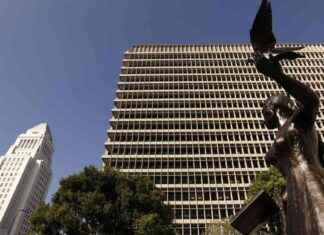Tunisia, facing serious economic difficulties, sharpened by the Covid and the war in Ukraine on which it depends for its wheat imports, has also been very polarized since the president seized all the powers a year ago, arguing the ungovernability of the country.
Participation is the main issue of the referendum, where the yes has a good chance of winning since the major opposition parties have called on their voters to abstain from voting.
More than 6% of the 9.3 million registered voters had voted at 8:30 GMT, three and a half hours after the opening, an “encouraging” figure, estimated the president of the Isie electoral authority, Farouk Bouasker, recalling the very low turnout in previous polls at the same time. The first results are expected no earlier than Tuesday.
In the polling stations in the center of Tunis, the crowd was indeed higher than expected, according to AFP journalists.
“We have great hope in July 25. Tunisia will prosper from today,” Imed Hezzi, a 57-year-old waiter, told AFP, showing a finger stained with blue ink, system put in place to prevent fraud.
Mongia Aouanallah, a 62-year-old retiree, is waiting for “a better life, so that our children’s children can live better” because “everything is catastrophic”. Ridha Nefzi, a 43-year-old daily worker, agrees. For him, “the country is back in the wall. At least we have the means to repair. Now begins a new page”.
After voting, the President called on voters to approve his Constitution to “establish a new Republic based on true freedom, true justice and national dignity”.
The new fundamental law establishes a hyper-presidential regime granting vast powers to the head of state, breaking with the parliamentary system in place since 2014.
The president appoints the head of government and the ministers and can dismiss them as he sees fit. He can submit to Parliament legislative texts which have “priority”. A second chamber to represent the regions is established, as a counterweight to the current Assembly of Representatives (deputies).
The opposition and many NGOs have denounced a Constitution “tailor-made” for Mr. Saied, and the risk of authoritarian drift of a president not accountable to anyone.
Sadok Belaïd, the jurist appointed by Mr. Saied to draw up the new Constitution, disavowed the final text, believing that it could “open the way to a dictatorial regime”.
– “All the powers” –
The opposition, both the Islamist-inspired movement Ennahdha, Mr. Saied’s pet peeve, and the Free Destourian Party of Abir Moussi, called for a boycott of the ballot, citing an “illegal process” and without consultation.
A complex character, President Saied has exercised power in an increasingly solitary way for the past year.
Aged 64, Mr. Saied considers his overhaul of the Constitution as an extension of the “correction of course” initiated on July 25, 2021 when, citing political and economic blockages, he dismissed his Prime Minister and froze Parliament before dissolve it in March, jeopardizing the only democracy that emerged from the Arab Spring.
The new text “gives almost all the powers to the president and dismantles all the systems and institutions that can control him,” Said Benarbia, regional director of the International Commission of Jurists ICJ, told AFP on Monday. It gives it “more powers than the 1959 Constitution”, drawn up under Habib Bourguiba, by removing the separation of powers and “a judicial power subordinate to the executive”.
“None of the safeguards that could protect Tunisians from violations similar to the Ben Ali (regime) exist”, according to Mr. Benarbia, convinced that the new Constitution “codifies autocracy”.
For analyst Youssef Cherif, spaces of freedom remain guaranteed but the question of a return to a dictatorial regime similar to that of Zine el Abidine Ben Ali, could arise “after Kais Saied”.
For most of the population, the priority is elsewhere: sluggish growth (around 3%), high unemployment (nearly 40% of young people), galloping inflation and the increase in the number of poor to 4 million people.
Tunisia, on the brink of default with a debt exceeding 100% of GDP, is negotiating a new loan with the IMF which has a good chance of being granted but will require sacrifices in return (reduction of subsidies for basic products, in particular), likely to cause social unrest.






